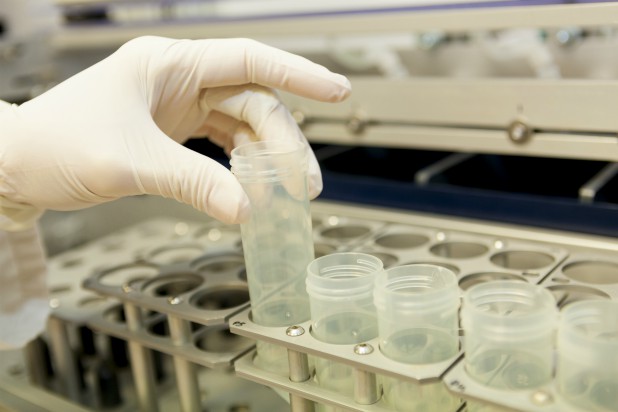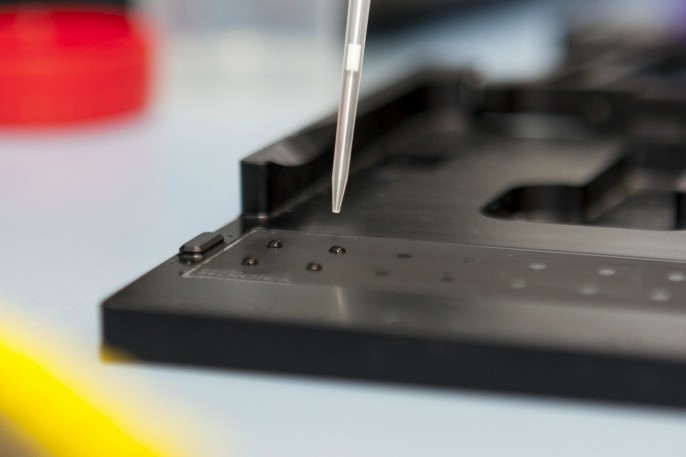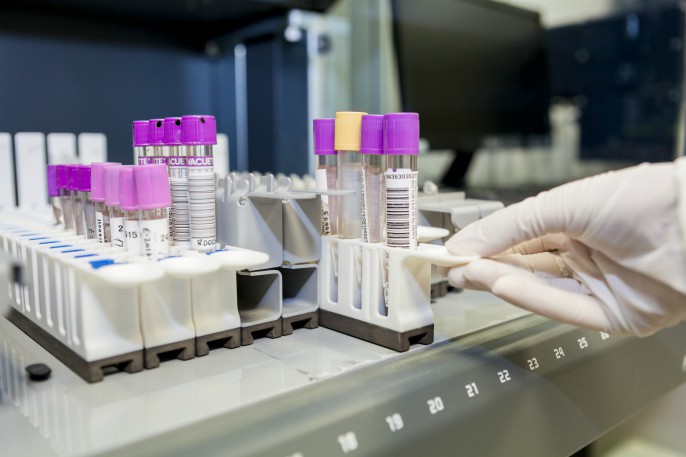Biobank IGTP-HUGTP
Organisation
The Biobank is structured according to the following units:
- Fluid node. It handles a wide range of samples (blood derivatives and other biological fluids, DNA, RNA) from different types of pathologies or population groups.
- Tumour bank. The tumour bank is one of the most important resources for the study of cancer are cancerous tissue and control (non-cancerous) tissues. Indeed, the purpose of the tumour bank is to collect and store these samples, and provide them to researchers, this way advancing the diagnosis, prognosis, prevention and treatment of cancer.
- Biomodel node. Creation of an animal sample bank: it collects and stores blood and tissue samples for research purposes. It provides support for the creation of animal models, maintenance and delivery of treatments. It also provides support to the creation, maintenance and storage of organoids or 3D human cell cultures, in close collaboration with IGTP's researchers, who are experts in this field. Organoids present a structure and operation similar to that of human organs, such that they are considered more complex models than conventional cell cultures and allow the study of embryonic development or human diseases. Organoids are also a promising tool for personalised medicine.
Scientific committee
| President | Coordinator of Transversal Processes and Territorial Alliances, Metropolitana Nord |
| Vice-President | HUGTP’s Pathology Service |
| Secretary | IGTP’s administration |
| Representative | Thoracic Surgery, HUGTP |
| Vocal | Clinical Genetics, HUGTP |
| Vocal | Pneumology, HUGTP |
| Vocal | Cardiology, HUGTP |
| Vocal | Neurology, IGTP |
| Vocal | Oncology, ICO |
Ethics committee
Regulation
The IGTP-HUGTP Biobank is authorized by the Ministry of Health of the Generalitat (Autonomous Government of Catalonia) and registered with the National Biobank Register of the Instituto Carlos III (referencia B.0000643).
The Biobank has its own internal regulations and a Biosecurity Plan. It is part of the National Network of Biobanks and applies the best practices published by this organization.
IGTP-HUGTP Biobanc Internal Regulations (Catalan/Spanish)
IGTP-HUGTP Biobanc Biosecurity Plan (Catalan/Spanish)
IGTP-HUGTP Biobanc Guide to Best Practices
Samples can be provided to the scientific community. Requests for samples must provide proof of the need for the biological materials requested and must guarantee that best practices will be upheld regarding science and ethics.
According to the Law of Biomedical Research, approved 3 July 2007 and the Spanish Royal Decree RD1716/2011 of 18 November a biobank is a non-profit public or private establishment that houses one or several collections of human biological samples destined for biomedical research and organized in a technical unity with criteria of quality, order and destination independently of whether it contains samples for other ends.
Both regulations, including the Spanish Royal Decree 234/2013 of 15 October of the "Diari Oficial de la Generalitat de Catalunya", regulate for the ownership, organization, channels of authorization and register as well as the requirements for obtaining, depositing and releasing samples to third parties of Biobanks and collections of samples.
Legal framework
The Law 14/2007, of 3 July 2007, on Biomedical Research, the Royal Decree 1716/2011, of 18 November, laying down the basic requirements for the authorization and operation of biobanks for the purposes of biomedical research and the processing of human biological samples, and the Decree 234/2013, of 15 October, regulating authorization for the creation and operation of biobanks for the purposes of biomedical research in Catalonia and the Xarxa Catalana de Biobancs. This way, the concept of biobank is defined, distinguishing between the general scheme for the processing of biological samples in biomedical research and the specific scheme to be applied when such processing is conducted in a biobank, including the requirements for collecting, lodging and transferring the samples to third parties.
Therefore, the work of the Biobank is strictly regulated and defined, and must regularly oversee and ensure strict monitoring of the applicable safeguards. The Biobank prioritises the respect, protection of the identity and dignity of individuals, free autonomy, a duty of confidentiality for those who have access to personal data and the principle of free donation of any kind of biological material for research purposes. Its legal framework provides for:
- Law 41/2002, of 14 November, regulating patient autonomy and their rights and obligations regarding health information and clinical documentation as a key component for the legal processing of the data
- Organic Law 3/2018 of 5 December on Personal Data Protection and digital rights"
- Regulation (EU) 2016/679 of the European Parliament and of the Council of 27 April 2016 on the protection of natural persons with regard to the processing of personal data and on the free movement of such data
- Law 39/2015 of 1 October, on the Common Administrative Procedure of Public Administrations
- Royal Decree 65/2006 of 30 January establishing requirements for the import and export of biological samples
- Universal Declaration on the Human Genome and Human Rights (UNESCO- International Bioethics Committee, Paris)
- Council of Europe's Recommendation (2006)4 on research on biological materials of human origin




